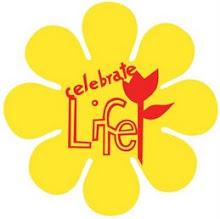About This Garden Thing....
 CityConnect posted this this evening about the proposed new zoning classfication:
CityConnect posted this this evening about the proposed new zoning classfication:
Zoning Change Would Allow for Community Garden
On Monday, City Council approved initiating a zoning change that would permit less-intense urban garden uses in all zoning districts, while requiring a conditional-use permit for higher-intensity gardens. On Tuesday, we posted a news release about changes.
This has prompted some questions from a few citizens. Some have perceived this change as the City attempting to regulate the garden in your backyard. That, of course, is not what's going on. Here are a couple of questions we received today, followed by our reply. The proposed change is coming as a result of a citizen request.
What is the difference between a low intensity garden and a more intense garden? Why this amendment at this time?
A couple that owns property located in west Springfield approached the Planning Department because they were interested in starting a community garden on their property.
Their property is zoned residential and a retail rezoning would not be possible because it is surrounded by residential zoning. Their vision is to have a “subscription” program where a customer could reserve a certain quantity of produce to pick up at an on-site stand, as well as selling fresh local produce to restaurants or at farmer’s markets. The current City Zoning Ordinance does not allow “agricultural uses” for a business operation on less than 20 acres unless the property has been grandfathered in.
Because of this couple’s inquiry, as well as the general growing interest in community gardening, etc., the Planning Department wanted to develop a way to accommodate this type of land use in a residentially zoned area. The intent is to see if this type of zoning could be developed and accepted by the community, Planning & Zoning and the City Council.
This has no effect on home gardeners who grow produce and share or pool on some informal basis that doesn’t involve a retail stand/greenhouse/additional traffic, etc. It also will only address crop gardening, not raising animals.
The conditional use being explored for high-intensity uses would apply to situations where someone may want to do something along these lines on larger pieces of property approaching that 20-acre size. It’s possible that with a piece of property that large, the owner/operator may want to use heavier machinery and that could create noise issues in residential neighborhoods in particular. While that is not the intent of this couple’s project, the Planning Department thought it would be worth considering other scenarios for this type of zoning amendment.
The action Council took on Monday simply starts the process of creating this type of zoning. Daniel Neal, the planner assigned to this project, says the couple intends to speak about their goals at the public hearings to be held before the Planning and Zoning Commission on Thursday, July 9, and before City Council on Monday, July 27. (Both begin at 7 p.m.) A staff report describing the proposed amendment in detail will be delivered to the Planning and Zoning Commission and made available to the public on Thursday, July 2, 2009.
Neal said the couple understands that they may only be able to do late-season planting this year if this moves forward, but that they are looking toward the future because they moved here from an area where sustainable gardening was more common and want to see it happen more in Springfield.
posted by Mike Brothers, Public Information
 I was one of those 'few citizens' (HEY! Get Out Of My Garden) who asked some questions. When first presented at City Council on Monday evening, this is how the summary for Council Bill 2009-124 was worded:
I was one of those 'few citizens' (HEY! Get Out Of My Garden) who asked some questions. When first presented at City Council on Monday evening, this is how the summary for Council Bill 2009-124 was worded: This amendment is being proposed to allow for more sustainable living in neighborhoods around the City. Municipalities across the country are recognizing the benefits of urban gardens and sustainability which ultimately result in an improved community or neighborhood environment. This amendment would allow these types of uses in all zoning districts either by right or with conditions.I asked the city's PIO what was the city's definition of urban garden, and what was meant by the terms "low intensity" and "more intense" (as mentioned in the city's news release).
I was told that the definitions would be worked out as the process develops and that
This issue was sparked specifically by a neighborhood group that wants the proper zoning to put in a community garden with enough bounty not only to feed the participating neighbors, but to take to Farmer's Markets, sell to local restaurants, etc. So, there is that factor, but also the heightened interest in community gardens in general with some people working on the 1,000 Gardens concept here, the "crisis" gardens from another perspective, etc.From what is described on CityConnect ("Their vision is to have a “subscription” program where a customer could reserve a certain quantity of produce to pick up at an on-site stand, as well as selling fresh local produce to restaurants or at farmer’s markets"), it sounds like the couple is wanting to start a truck garden (which would require a retail zoning) in an area that is zoned residential. Under current zoning laws a retail rezoning would not be possible because their land is surrounded by residential zoning.
Instead of calling their project a 'truck garden', they are calling it a 'community garden.' Truck garden has a more commercial nuance than community garden. Remember that the news release specifically said, "Delete all references to truck gardens, which are not defined, in the Zoning Ordinance." Fassnight Creek Farm is a local example of a truck garden.
My issue is that this was presented to us as coming from a neighborhood group who wanted to share their bounty with their neighborhood. Only by asking questions did it surface that this was in response to a citizen who wanted to change the zoning of their property from residential to retail so they could go into the business of truck gardening. Ok, community gardening. (Do you think this matter would have gone to Council if the couple wanted to put in a car lot or a Maid-Rite?)
With all the issues facing the city today, this amendment is small potatoes. But if we are given a false picture of something as small as this, if the city couldn't tell us outright that this was basically about a zoning change request from residential to retail ---
Let me give you this example: My Mother, may she rest in peace, didn't tolerate lying. I remember as a kid growing up, hearing her say, "If you lie about little things, you will lie about big things."
I am not interested in 'gotcha journalism' and I am certainly NOT saying the city is lying to us but it appears staff can be selective sometimes with information presented to Council. If the city isn't giving us the complete picture on something as small as an amendment to the zoning code (and it certainly appeared to be the case until a few citizens started asking questions), how do we know we are getting the complete picture on the big things?
An Ozark oldtimer from down around Protem may have expressed the sentiment far better than I have when he said "Heck, I ain't paranoid, I'm jist wary of the gubmint."
The third largest city in the state is governed by volunteers.










2 comments:
"Urban gardens are considered a community or market garden where an individual or groups of individuals grow and harvest food crops and/or non-food, ornamental crops, such as flowers for personal, group use, consumption, donation or to to be sold for profit."
You are right, it sounds like a truck garden.
just makes really wonder WHAT they are planning on growing in this
"community garden"......
ah community, a derivative of 'commune'....a place popular in the 60's and 70's.....
makes you think doesn't it.....
or else #6 thinks this is a
'GREAT IDEA'.....
make the call....
we've had 24 inches of rain in the last 4 days.....what is that bright yellow thing in the eastern sky..???
brother can you spare a boat????
Post a Comment